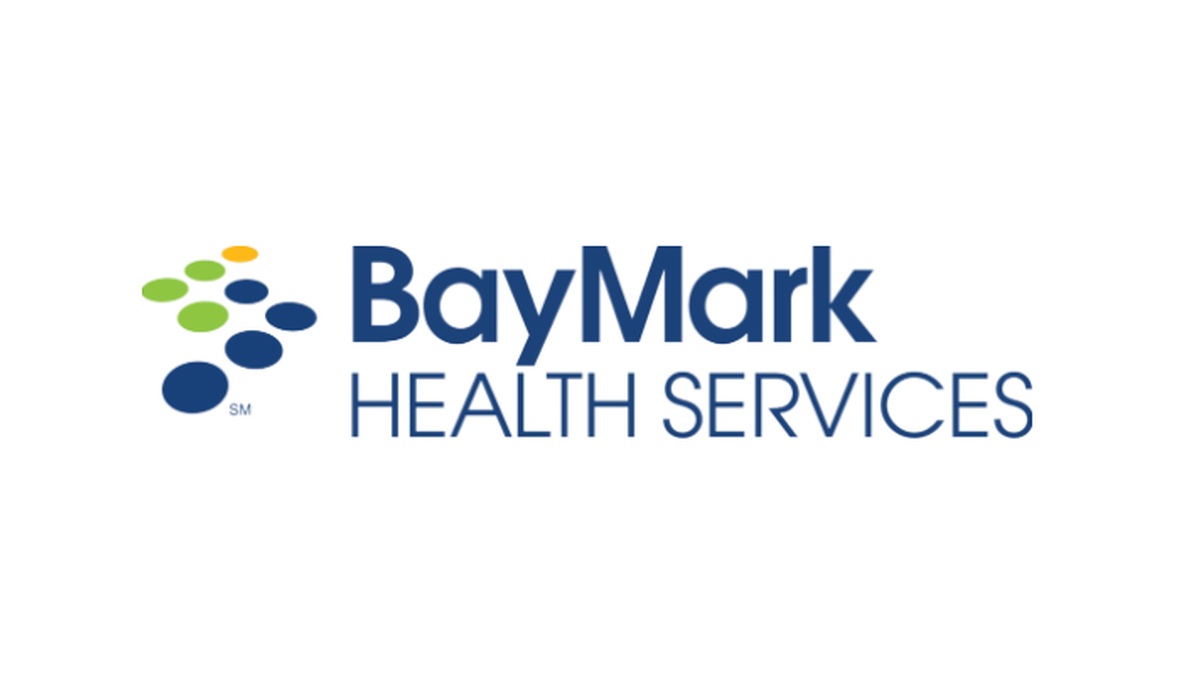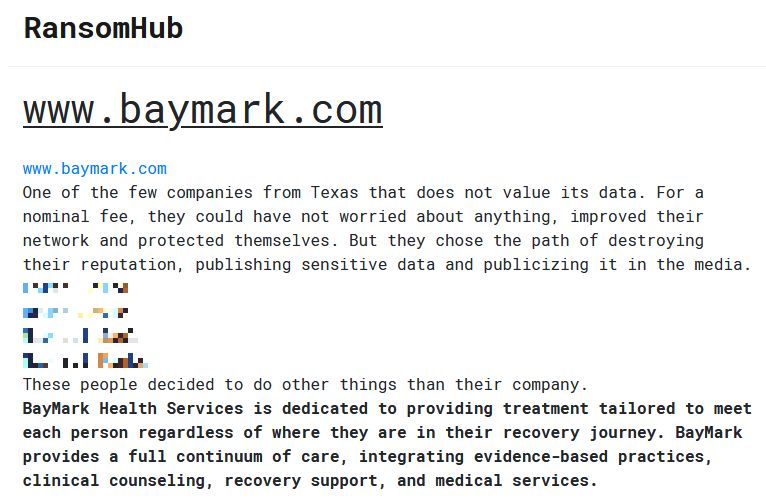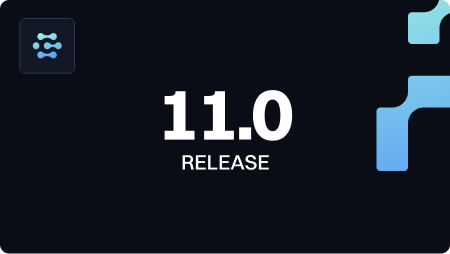BayMark Health Services sends breach notifications after ransomware attack
BayMark Health Services, Inc. notified an unknown number of patients that attackers stole their personal and health information.

BayMark Health Services, Inc. (BayMark) notified an unknown number of patients that attackers stole their personal and health information.
BayMark profiles itself as North America’s largest provider of medication-assisted treatment (MAT) for substance use disorders helping tens of thousands of individuals with recovery.
In a breach notification, the company disclosed that on October 11, 2024 it learned about an incident that disrupted the operations of some of its IT systems. This incident consisted of an unauthorized party accessing some of the files on BayMark’s systems between September 24 and October 14 of last year.
An investigation showed that the exposed files contained information that varied per patient but could have included the patient’s name and one or more of the following:
- Social Security number (SSN)
- Driver’s license number
- Date of birth
- The services received and the dates of service
- Insurance information
- Treating provider
- Treatment and/or diagnostic information
While BayMark did not provide any information about the number of victims or the nature of the accident, it has been separately reported that the RansomHub ransomware group has BayMark listed on their leak site.
The RansomHub ransomware group claims to have exfiltrated an enormous 1.5 terabytes of sensitive data from BayMark Health Services.

The date on the dark web site matches the date published in the breach notification. Further, the fact that the data are listed as “published” means that BayMark did not pay the ransom, which is confirmed by the cybercriminals you click through on the company’s tile.

Here, the ransomware group lays blame on the company itself. This isn’t rare for a ransomware group, as the tactics and vernacular are often based around shame, guilt, and a pre-teen-like arrogance. As claimed in the dark web site:
One of the few companies from Texas that does not value its data. For a nominal fee, they could have not worried about anything, improved their network and protected themselves. But they chose the path of destroying their reputation, publishing sensitive data and publicizing it in the media.
{names}
These people decided to do other things than their company. BayMark Health Services is dedicated to providing treatment tailored to meet each person regardless of where they are in their recovery journey. BayMark provides a full continuum of care, integrating evidence-based practices, clinical counseling, recovery support, and medical services.
Protecting yourself after a data breach
There are some actions you can take if you are, or suspect you may have been, the victim of a data breach.
- Check the vendor’s advice. Every breach is different, so check with the vendor to find out what’s happened, and follow any specific advice they offer.
- Change your password. You can make a stolen password useless to thieves by changing it. Choose a strong password that you don’t use for anything else. Better yet, let a password manager choose one for you.
- Enable two-factor authentication (2FA). If you can, use a FIDO2-compliant hardware key, laptop or phone as your second factor. Some forms of two-factor authentication (2FA) can be phished just as easily as a password. 2FA that relies on a FIDO2 device can’t be phished.
- Watch out for fake vendors. The thieves may contact you posing as the vendor. Check the vendor website to see if they are contacting victims, and verify the identity of anyone who contacts you using a different communication channel.
- Take your time. Phishing attacks often impersonate people or brands you know, and use themes that require urgent attention, such as missed deliveries, account suspensions, and security alerts.
- Consider not storing your card details. It’s definitely more convenient to get sites to remember your card details for you, but we highly recommend not storing that information on websites.
- Set up identity monitoring. Identity monitoring alerts you if your personal information is found being traded illegally online, and helps you recover after.



















